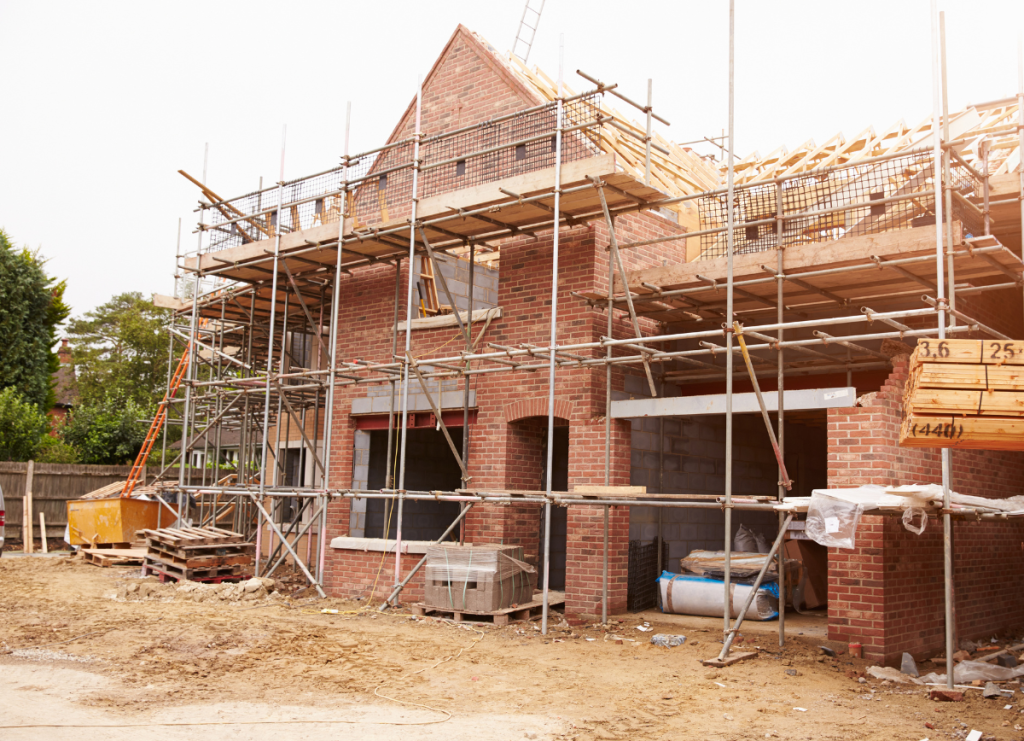
Unlock the Secret to Property Development: A Beginner’s Step-by-Step Guide to Your First Property Development Project
Are you considering diving into the world of property development but don’t know where to start? You’re not alone. Property development is a rewarding venture, but it’s also a complex one. For inexperienced developers, this guide will demystify the process and set you up for success.
Why Start with a Small Residential Project?
As a first-time developer, choosing the right project is crucial. Small residential developments, such as converting a single-family home into flats or building a pair of semi-detached houses, are ideal starting points. These projects:
- Require less capital and carry lower risks than commercial or large-scale developments.
- Are easier to manage and more predictable in terms of timelines and budgets.
- Have high demand in the UK housing market, ensuring a strong potential for profit.
By starting small, you’ll gain valuable experience without overwhelming yourself.
Step-by-Step Guide to Your First Property Development Project
1. Set Your Budget and Secure Financing
Determine how much you can afford to invest. Development loans, such as bridging loans or property development finance, can provide the capital you need. Work with a professional broker to find the best financing option tailored to your project.
Pro Tip: Include contingency funds (10-15% of the project cost) to cover unexpected expenses.
2. Research the Market
Look for areas with strong demand for housing and growth potential. Consider proximity to transport links, schools, and amenities. Use online tools like Rightmove or Zoopla to analyse local property prices and trends.
3. Find the Right Property or Plot
Focus on properties with development potential, such as those with:
- Large gardens (ideal for extensions or additional dwellings).
- Planning permission already in place (reduces delays and uncertainty).
- A location in a desirable area.
Work with local estate agents and auction houses to uncover opportunities.
4. Plan Your Development
Collaborate with an architect or property planner to create a clear development plan. Decide on the type of project—extension, conversion, or new build—and prepare for the planning permission process if required.
Pro Tip: Local council websites often provide valuable information about planning regulations and requirements.
5. Choose the Right Building Materials
Opt for durable, cost-effective materials that align with your budget and the style of the project. For example:
- Use bricks or blockwork for traditional designs.
- Consider sustainable options like timber frames or reclaimed materials for eco-friendly developments.
Pro Tip: Building materials can account for up to 40% of project costs, so plan wisely.
6. Hire the Right Specialists
Engage reliable subcontractors, including:
- Architects: For planning and design.
- Surveyors: To assess structural integrity.
- Tradespeople (electricians, plumbers, carpenters): For specialist tasks.
- Project Managers: To oversee the development if you lack the time or expertise.
Ask for recommendations, check reviews, and ensure all subcontractors have proper certifications and insurance.
Pro Tip: Create a milestone-based payment schedule to maintain accountability.
7. Monitor Progress and Stay on Budget
Regularly visit the site to monitor progress and address any issues promptly. Keep detailed records of expenses and compare them with your budget to avoid overspending.
8. Market Your Property
Once the project is complete, decide whether to sell or rent the property. Work with a local estate agent to market it effectively and maximise your returns.
Pro Tip: Use high-quality photos and virtual tours to attract buyers or tenants online.
Common Problems (and Solutions) in Property Development
1. Delays in Planning Permission
- Problem: Local councils can take weeks or months to approve applications.
- Solution: Submit thorough and accurate applications and follow up regularly.
2. Unreliable Contractors
- Problem: Some tradespeople may not deliver quality work or meet deadlines.
- Solution: Vet contractors thoroughly, use written contracts, and pay in stages based on completed milestones.
3. Budget Overruns
- Problem: Unexpected costs can derail your project.
- Solution: Include a contingency budget and monitor spending closely.
Case Study: Sarah’s Success Story
Project: Sarah, a 40-year-old first-time developer, purchased a two-bedroom house in Manchester for £180,000 with the intention of converting it into two flats.
Steps Taken:
- Secured a £140,000 development loan.
- Worked with a local architect to design the layout and obtained planning permission.
- Hired subcontractors for plumbing, electrical work, and renovations.
- Used cost-effective materials like engineered wood flooring and UPVC windows.
Outcome:
- Total project cost: £250,000
- Sale price of the two flats: £310,000
- Profit: £60,000
Sarah’s story shows the importance of careful planning, reliable contractors, and choosing the right project.
FAQs
Q: How do I know if a property has development potential?
A: Look for features like large gardens, existing planning permissions, or properties in high-demand areas. Consult a property surveyor or architect for expert advice.
Q: What’s the best way to avoid delays?
A: Ensure all planning permission applications are complete and accurate. Maintain clear communication with contractors and suppliers to avoid project holdups.
Q: Should I sell or rent out my developed property?
A: This depends on your financial goals. Selling offers a one-time profit, while renting provides long-term income. Consult with an estate agent to determine market demand and pricing.
Final Thoughts
Starting your first property development project may seem daunting, but with the right approach, it can be an incredibly rewarding experience. By following this guide, you’ll avoid common pitfalls and build a solid foundation for future projects. Ready to take the plunge? The UK property market is waiting for you!
For more information contact us for a no obligation chat.
To keep informed of our latest property articles about all things property follow us on facebook
#PropertyDevelopment #RealEstateInvesting #BeginnerDevelopers #UKPropertyMarket #InvestmentTips #HomeRenovation
